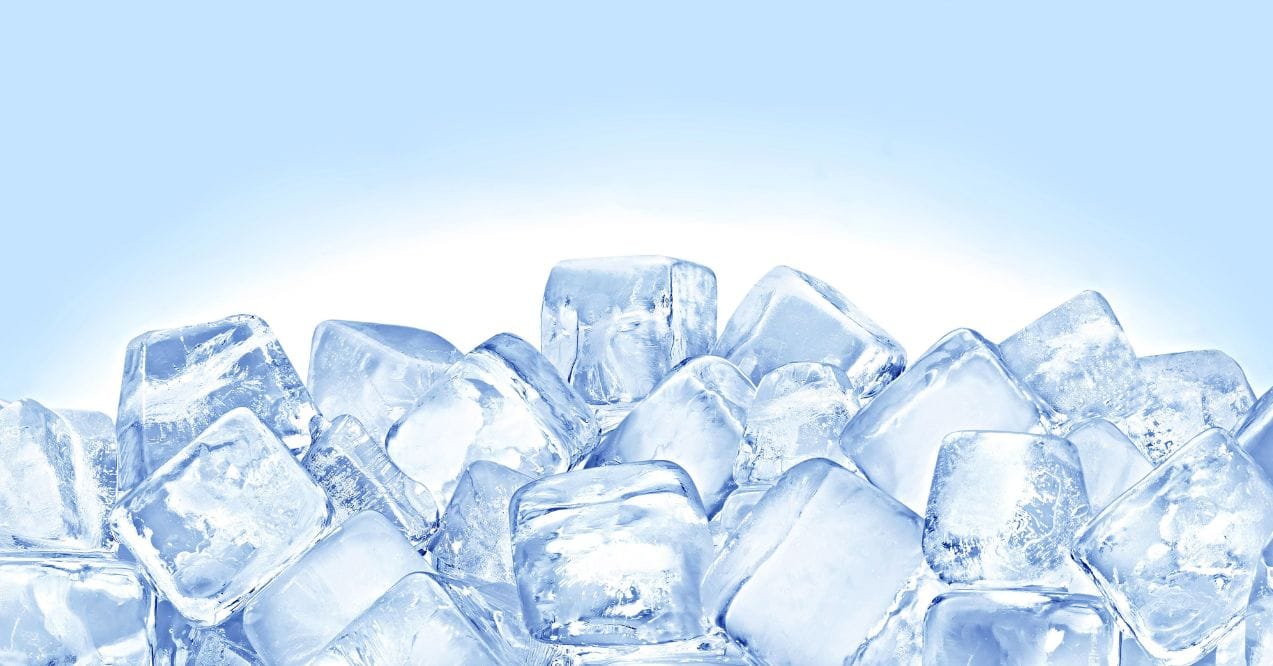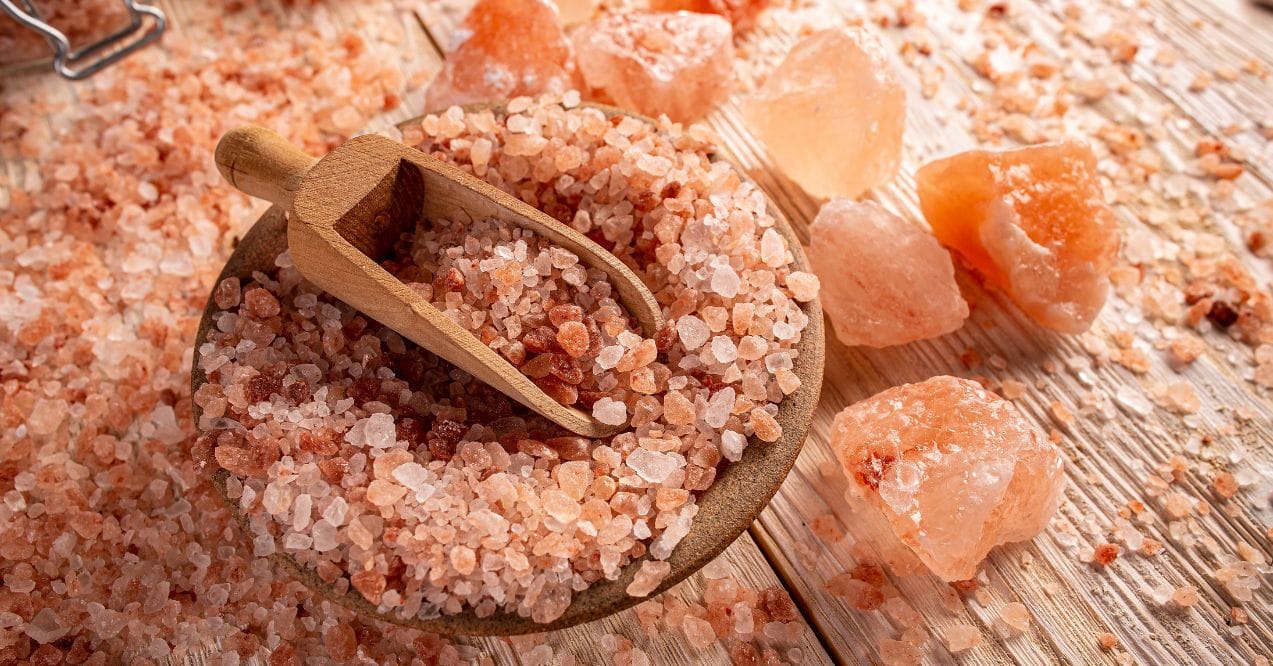Does Eating Ice And Salt Make You Lose Weight?
Medically reviewed by our experts


Many viral trends claim to offer quick weight management hacks, including the idea that eating ice and salt can help you lose weight. But does eating ice and salt make you lose weight, or is it just another myth? In this article, we’ll explore the science, potential risks, and better strategies to support healthy weight management.
Key Article Findings
- Eating ice and salt won’t create significant weight loss despite viral claims
- Cold exposure may slightly increase calorie burn but not enough for real results
- Sustainable weight management requires balanced nutrition and regular activity
What is the Ice and Salt Weight Loss Trend?
The ice hack diet has gained attention as a supposed shortcut to weight management. This trend involves adding ice cubes and salt to your daily routine, with believers claiming it forces your body to burn more calories. The concept suggests that consuming cold foods makes your body work harder to maintain its normal body temperature.
Supporters believe this extra work may boost metabolism and activate brown fat, a special type of tissue that burns energy. Some variations include drinking ice water with salt, chewing on salted ice cubes, or eating frozen foods throughout the day. The appeal lies in its simplicity – no special equipment or expensive programs needed.
However, this approach to weight management lacks substantial backing. While cold exposure does have some metabolic effects, the reality of how much it impacts body weight tells a different story.
Does Eating Ice and Salt Make You Lose Weight?
The short answer is no – not in any meaningful way. While there’s some science behind cold exposure and metabolism, eating ice with salt won’t create the weight loss results most people seek. Let’s examine the theories and evidence behind this trend.
The Cold Exposure Theory
Cold exposure forces your body to generate heat, which may burn more calories in the process. When you consume ice or cold water, your internal systems work to warm these substances to body temperature. This process, called thermogenesis, does require energy expenditure.
Some studies suggest that drinking cold water may temporarily increase calorie burn by about 8-15 calories per glass. The theory extends to suggest that regular cold exposure could enhance fat burning over time.
The Role of Brown Fat and Metabolism
Brown fat differs from regular white fat because it actively burns calories to produce heat. This special tissue contains more mitochondria, which act as cellular furnaces. Cold exposure may activate brown fat, potentially helping to boost metabolism slightly.
Adults typically have small amounts of brown fat, mainly around the neck and shoulders. While eating cold foods might trigger some brown fat activity, the effect from ice consumption alone is minimal. Your body temperature regulation involves complex systems that simple ice eating cannot significantly influence.
Scientific Evidence and Limitations
Scientific evidence supporting the ice and salt trend for weight management remains extremely limited. Research findings show:
- A 2019 study in the Journal of Clinical Endocrinology & Metabolism found cold-induced thermogenesis increased energy expenditure by 125-300 calories per day in controlled conditions
- A 2022 systematic review in Frontiers in Physiology confirmed cold exposure increases metabolism but found results were inconsistent
- We found no peer-reviewed studies specifically examine eating ice mixed with salt for weight loss
Most experts agree that while cold exposure has some metabolic effects, it cannot replace proper nutrition and exercise for sustainable results. The calories burned from warming ice to body temperature are negligible and don’t translate to meaningful fat burning.
Potential Side Effects and Health Considerations
Before trying any weight loss trend, it’s important to understand the potential risks. The ice and salt method may cause several uncomfortable or harmful side effects that outweigh any minimal benefits. Here’s what you need to know about the safety concerns.
Risks of Excess Salt Consumption
Adding extra salt to your diet may create several health concerns. High sodium intake affects fluid management in your body and may influence blood pressure levels, especially in sensitive individuals. For those with cardiovascular disease, excess salt poses additional risks and can lead to water retention and bloating.
The recommended daily sodium intake is about 2,300 milligrams. Adding salt to ice as a weight loss strategy could easily push you over this limit. This may lead to water retention, which ironically could make the scale show higher numbers.
Discomfort from Eating Ice
Regular ice chewing may cause multiple issues:
- Damages tooth enamel and increases sensitivity
- May cause digestive discomfort with large amounts
- Stomach cramping or bloating from sudden temperature changes
- Could indicate iron deficiency if cravings are intense
Compulsive ice eating, called pagophagia, sometimes indicates iron deficiency. If you find yourself craving ice constantly, consulting a healthcare provider makes sense. Cold foods may also slow digestion in some individuals, leading to uncomfortable side effects.
Why This Trend May Not Lead to Sustainable Weight Management
The ice hack diet fails as a long-term strategy for several reasons. First, any calorie deficit from cold exposure is too small to impact body weight significantly. The discomfort of eating ice regularly outweighs any minimal benefits you might experience. More importantly, focusing on gimmicks distracts from proven weight management methods that actually work.
Real weight management requires addressing overall eating patterns and activity levels. You might burn more calories shivering in a cold room than eating ice, but neither approach offers sustainable results. The minimal extra calories you might burn eating ice pale in comparison to what proper nutrition and movement accomplish.
Additionally, relying on uncomfortable or potentially harmful practices sets you up for failure. Sustainable habits should enhance your life, not make you miserable. The ice and salt trend offers neither comfort nor meaningful results.
Better Ways to Support Weight Management
Rather than relying on unproven tricks, several evidence-based strategies can effectively support your weight management goals. These approaches work with your body’s natural processes and create lasting results without discomfort or risk.
Smarter Alternatives
Instead of extreme hacks, focus on proven strategies that support your body’s natural processes:
- Stay well-hydrated with regular temperature water for optimal metabolism
- Build muscle through strength training to increase resting metabolic rate
- Eat protein-rich foods to support satiety and muscle maintenance
- Get adequate fiber from whole food sources
- Manage portion sizes without extreme restriction
For those seeking additional support, evidence-based weight loss supplements combined with healthy habits may offer better results than ice consumption. Regular physical activity remains the gold standard for increasing calorie burn. Even moderate exercise surpasses any benefits from eating ice and salt.
Long-Term Lifestyle Strategies
Quality sleep plays a vital role in weight management by regulating hunger hormones. Adults need 7-9 hours nightly for optimal metabolic function. Stress management through meditation, yoga, or other relaxation techniques may support stable body weight better than any dietary trick.
Focus on whole foods rich in nutrients rather than processed options. These choices naturally support energy levels and satisfaction. Consistency matters more than perfection – small daily actions compound into significant results over time.
Conclusion
The idea that eating ice and salt makes you lose weight sounds appealing but doesn’t hold up when you look at the science. While cold exposure may burn a few extra calories, it’s not a sustainable solution. Focusing on proven, healthy habits can better support your weight management journey.
Eating ice may cause minimal calorie burn as your body warms it, but the effect is too small to create meaningful fat loss or support real weight management goals.
Yes, excess salt intake may raise blood pressure, cause water retention, and pose risks for people with cardiovascular conditions. Moderation is important for health.
The ice hack diet involves consuming ice, cold foods, and cold drinks to supposedly boost metabolism and burn calories through thermogenesis, though scientific support is limited.
While occasional ice consumption is generally safe, regular ice chewing may damage tooth enamel, cause digestive discomfort, and sometimes indicates underlying nutritional deficiencies.
Balanced nutrition, regular physical activity, adequate sleep, stress management, and staying hydrated offer proven, sustainable approaches to healthy weight management without extreme measures.
Marriott, B. M., & Carlson, S. J. (1996). Physiology of cold exposure. Nutritional Needs in Cold and in High-Altitude Environments – NCBI Bookshelf.
How brown fat improves metabolism. (2025). National Institutes of Health (NIH).
Brychta, R. J., Et Al. (2019). Quantification of the capacity for Cold-Induced thermogenesis in young men with and without obesity. The Journal of Clinical Endocrinology & Metabolism, 104(10), 4865–4878.
Huo, C., Et Al. (2022). Effect of acute cold exposure on energy metabolism and activity of brown adipose tissue in Humans: A Systematic Review and Meta-Analysis. Frontiers in Physiology, 13.
About sodium and health. (2024). Salt.
Marcin, A. (2017). What is pagophagia? causes, treatment, and more. Healthline.
National Academies Press (US). (2004). Weight-Loss and maintenance strategies. Weight Management – NCBI Bookshelf.
Kim, J. Y. (2020). Optimal Diet Strategies for weight loss and weight loss maintenance. Journal of Obesity & Metabolic Syndrome, 30(1), 20–31.
Popular Articles
Advertisement. This site offers health, wellness, fitness and nutritional information and is designed for educational purposes only. You should not rely on this information as a substitute for, nor does it replace, professional medical advice, diagnosis, or treatment. If you have any concerns or questions about your health, you should always consult with a physician or other health-care professional. Do not disregard, avoid or delay obtaining medical or health related advice from your health-care professional because of something you may have read on this site. The use of any information provided on this site is solely at your own risk.







